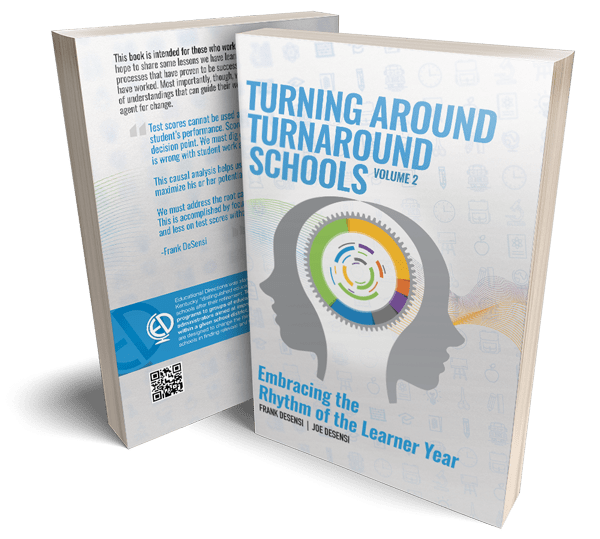At Educational Directions, we focus on creating tailored programs that directly enhance student learning and achievement. Whether revitalizing underperforming schools or guiding high-achieving institutions to blue ribbon recognition, our solutions are designed to deliver lasting improvements in student performance.
Educational Consulting
Academic Reviews
Professional Development
The Educational Directions Impact

Free Educational Tools
As a courtesy to schools, Educational Directions is sharing all of the tool kits from our latest book, Turning Around Turnaround Schools – Volume 2: Embracing the Rhythm of the Learner Year. If you do find them useful, drop us a comment, give us a like, or even follow us on social media. Interested in reading the book? Check it out here.
Our Thoughts on Education

Building Bridges: A Guide to Parent Communication
A strong partnership between home and school is one of the most reliable predictors of student success. When parents are informed and engaged, they can

Breathe New Life into Your Lesson Plans
The second semester presents a unique opportunity for teachers. It’s more than just the back half of the school year; it’s a chance to build

Goal Setting for a Strong Second Semester
The start of a new semester is a natural point to reset and refocus. After reflecting on the first half of the year, the next

Beyond the Numbers: A Deep Dive into School Data
The first half of the school year provides a treasure trove of information. Hidden within attendance records, grade books, and behavior logs are the stories

Start Fresh: Your Guide to Second Semester Success
The winter break offers a much-needed pause for educators to rest and recharge. As the new year begins, it also presents a perfect opportunity to

Elevating Education: A Guide to Increasing Academic Rigor
Academic rigor has been identified in state standards as a cornerstone of effective education. It is seen as an essential part of preparing students for
